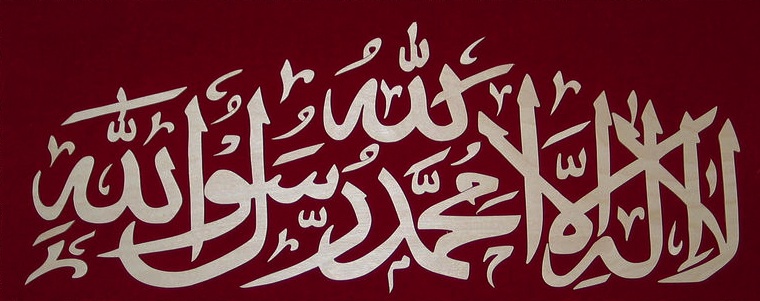Five Pillars of Islam
Salam.
A repost. In case u or other need for wotever reasons inshallah.
A repost. In case u or other need for wotever reasons inshallah.
The Five Pillars of Islam
1. The Profession of Faith—The Shahada
The Profession of Faith, the shahada, is the most fundamental expression of Islamic beliefs. It simply states that “There is no God but God and Muhammad is his prophet.” It underscores the monotheistic nature of Islam. It is an extremely popular phrase in Arabic calligraphy and appears in numerous manuscripts and religious buildings.
2. Daily Prayers—Salat
Muslims are expected to pray five times a day. This does not mean that they need to attend a mosque to pray; rather, the salat, or the daily prayer, should be recited five times a day. Muslims can pray anywhere; however, they are meant to pray towards Mecca. The faithful pray by bowing several times while standing and then kneeling and touching the ground or prayer mat with their foreheads, as a symbol of their reverence and submission to Allah. On Friday, many Muslims attend a mosque near midday to pray and to listen to a sermon, khutba.
Note: actually it's fard (must) to perform the five fard Sarahs in masjid with congregation. If unable then anywhere else is also permissable.
3. Alms-Giving—Zakat
The giving of alms is the third pillar. Although not defined in the Qu’ran, Muslims believe that they are meant to share their wealth with those less fortunate in their community of believers.
Note: wrong! It's clearly defined in the Quran - who r eligible n how to calculate for zakah.
4. Fasting during Ramadan—Saum
During the holy month of Ramadan, the ninth month in the Islamic calendar, Muslims are expected to fast from dawn to dusk. While there are exceptions made for the sick, elderly, and pregnant, all are expected to refrain from eating and drinking during daylight hours.
5. Pilgrimage to Mecca—Hajj
All Muslims who are able are required to make the pilgrimage to Mecca and the surrounding holy sites at least once in their lives. Pilgrimage focuses on visiting the Kaaba and walking around it seven times. Pilgrimage occurs in the 12th month of the Islamic Calendar.
Essay by Dr. Elizabeth Macaulay-Lewis




Comments